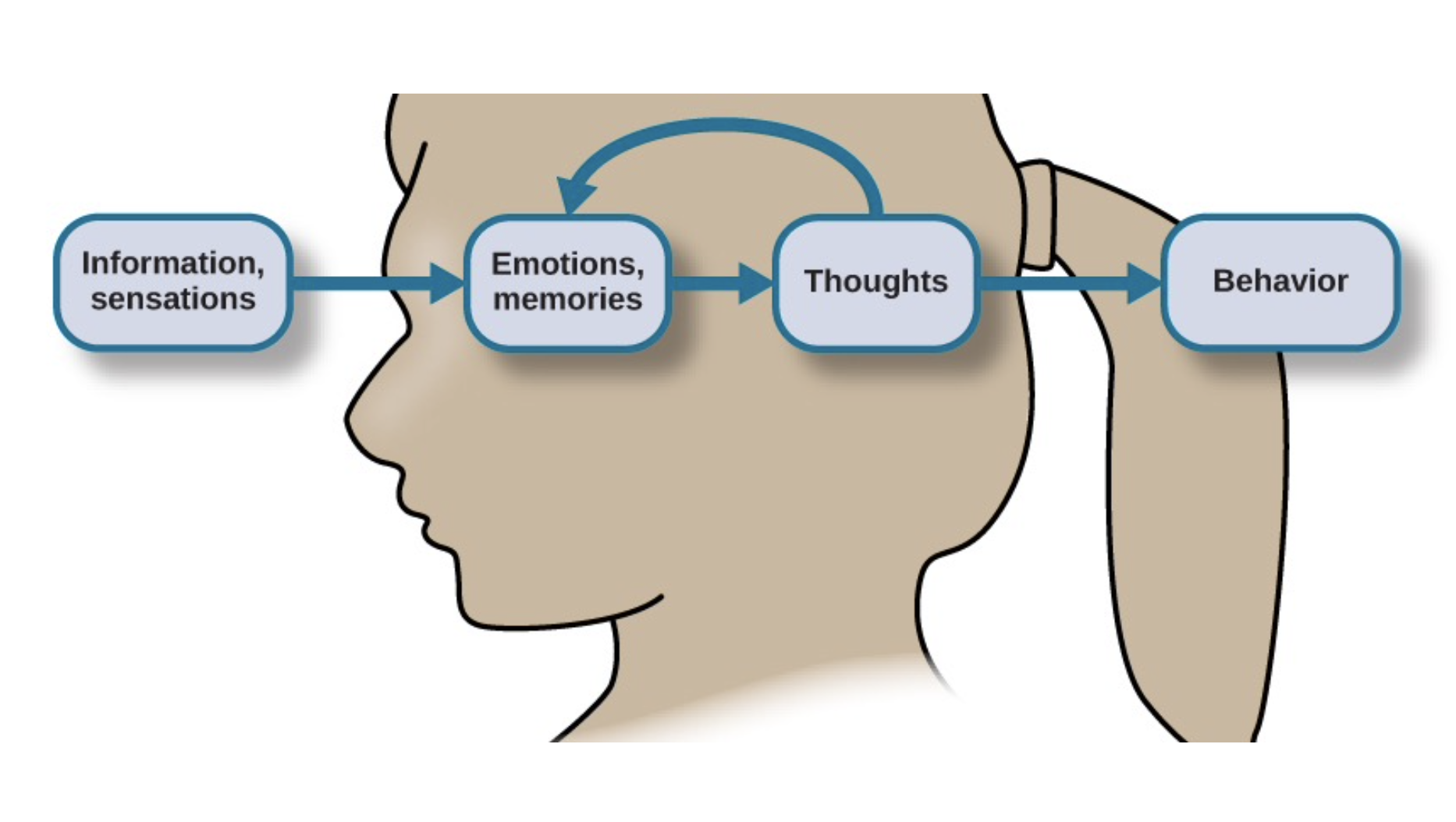Ch. 7 - Thinking and Intelligence
1/17
There's no tags or description
Looks like no tags are added yet.
Name | Mastery | Learn | Test | Matching | Spaced |
|---|
No study sessions yet.
18 Terms
Cognition is associated with ….
-Perception
-Knowledge
-Problem-solving
-Judgement
-Language
Memory
Cognition
-Thinking and the brain's processes that include perception, knowledge, problem solving, judgment, language, and memory.
Sensations and information are received by our brains, filtered through emotions and memories, and processed to become thoughts.

Concepts
categories of linguistic information, images, ideas, or memories.
- Used to see relationships among different elements of experience.
- Can be complex/abstract or concrete.
-They help in organizing and understanding information effectively.
the mind has developed a file cabinet, the different files stored in the file cabinet are called concepts.
Prototype
the best example or representation of a concept.
E.g. Mahatma Gandhi could be a prototype for the category of civil disobedience.
This means that when you think of a dog, your mental image depends on your earliest experiences. For example, if your first pet was a Golden Retriever, you are likely to think of that breed as your “prototype” or typical example of what a dog is.
natural concepts
Created “naturally” through either direct or indirect experience.
- E.g. our concept of snow.
For example, someone in Vermont knows snow firsthand, while someone in the Caribbean may know it only through pictures or movies. Either way, both develop an understanding of snow.
artificial concepts
Defined by a specific set of characteristics that are always the same.
- E.g. Properties of geometric shapes (squares, triangles etc). A triangle always has three angles and three sides.
Schema
-a mental construct consisting of a collection of related concepts.
When a schema is activated, we automatically make assumptions about theperson/object/situation.
schemata
method of organizing information that allows the brain to work more efbciently
role schema
makes assumptions about how individuals in certain roles will behave.
- What assumptions come to mind about a
librarian?
when you meet someone who says they’re a firefighter, you may assume they’re brave and selfless. However, that may not be true—they could just be working the job to pay for school—demonstrating how role schemata shape expectations but can also lead to inaccurate judgments.
Event schema (cognitive script)
a set of routine or automatic behaviors.
- Can vary widely among different cultures and countries.
- Dictate behavior.
- Make habits difficult to break.
- E.g. when riding in an elevator, we automatically stand facing the door
what do you do when you encounter a problem?
identify the problem analyze potential solutions and select the best one.
problem-solving strategy
-a plan of action used to bnd a solution.rt
trial and error
continue trying different solutions until problem is solved.
ex: Restarting phone, turning off WiFi, turning off bluetooth in order to determine why your phone is malfunctioning
Algorithm
-step-by-step problem-solving formula used to achieve a desired outcome
-that produce the same result every time they are performed.
Instructional video for installing new software on your computer
Heuristic
general problem-solving framework.
- Short-cuts.
- A “rule of thumb”.
When do people use heuristics?
- When one is faced with too much information.
- When the time to make a decision is limited.
- When the decision to be made is unimportant.
- When there is access to very little information to use in making the decision.
- When an appropriate heuristic happens to come to mind in the same moment.
Working backwards
begin solving the problem by focusing on the end result.
- Breaking large tasks into a series of smaller steps.
solving a maze by starting at the end and tracing the path back to the beginning. This strategy helps you reach the solution more quickly by focusing on the goal first.
you start with your destination and travel date, then work backwards to decide what time to leave, when to pack, and how to get to the airport on time.
mental sets
Persistence in approaching a problem in a way that has worked in the past. (A set way of looking at a problem).
- Becomes a problem when that way is no longer working.